It is the policy of the Council for Christian Colleges & Universities (“CCCU”) Student Programs to prohibit sexual harassment and all other forms of unlawful harassment of its employees and students in any form. In maintaining this policy the CCCU seeks to assert basic Christian precepts, to affirm ethical standards predominantly accepted in the work place and academy, and uphold existing laws. Any practice or behavior that constitutes sexual harassment is absolutely prohibited and will not be tolerated.
Definition of sexual harassment:
Sexual harassment includes unwelcome sexual advances, requests for sexual favors, and other verbal or physical conduct of a sexual nature when (1) submission to such conduct is made either explicitly or implicitly a term or condition of an individual’s success on a program, (2) submission to or rejection of such conduct by an individual is used as the basis for program decisions affecting an individual, or (3) such conduct has the purpose or effect of substantially interfering with an individual’s work or academic performance, or of creating an intimidating, hostile, or offensive environment.
Examples of behavior that may constitute sexual harassment include (but are not limited to) the following:
- Subtle pressure for sexual activity
- Unnecessary brushes, touches, poking another person’s body, or other inappropriate touching
- Offensive sexual graffiti
- Disparaging remarks about one’s gender
- Physical aggression such as pinching, patting, assault, impeding, or blocking movement
- Sexual innuendos
- Verbal sexual abuse, including abuse disguised as humor
- Obscene gestures
- Sexist remarks about a person’s clothing, body, or sexual activities
- Leering, staring at another person’s anatomy
- Making or threatening reprisals after a negative response to sexual advances
Sexual harassment is primarily a desire for a locus of control over the victim, where one person intendeds to intimidate, coerce, embarrass, or degrade another person. Usually there is an implied imbalanced power dynamic between the aggressor and the victim, such as a supervisor and employee, faculty and student, or student and student. However, the roles could be reversed such that a student could attempt sexual harassment of faculty or staff. The result of this harassment is exploitation of power. In any form, such behavior undermines the atmosphere of trust and collegiality that CCCU Student Programs seeks to foster and is unacceptable.
Students participating in culture-crossing programs should be informed that in some instances the local methods of communication differ from what they are accustomed to and may be uncomfortable for them. Some cultures touch as a manner of conversing or to get a point across; other cultures stare to make eye contact and be friendly. However, if after acknowledging cultural differences, students continue to feel uncomfortable they should discuss their situations with program staff.
While harassers may think that their words/actions are meaningless, the victim may be emotionally distraught or even internalize the events into physical symptoms. Emotive responses may include anger, embarrassment, fear, and feeling intimidated, powerless, and degraded. Physical responses may include physical illnesses, withdrawing from social situations, drug and alcohol use to ease/lessen emotions and tension, and also distrust of previously trusted individuals.
Other Unlawful Harassment
Harassment on other grounds is prohibited, including based on race, color, religious creed, sex, gender, marital status, age, national origin or ancestry, physical disability, mental disability, medical condition, Vietnam-Era or disabled veteran status, military service, or any other basis protected by federal or state law (all as defined and protected by applicable law). Harassment includes jokes, verbal abuse and epithets, degrading comments, the display of offensive objects and pictures, and other conduct that the individual might reasonably find to be offensive.
Prompt Reporting and Investigation
An extended period of time between an alleged occurrence and an inquiry into the circumstances of that incident may make fact-finding extremely difficult or impossible. Therefore, any person who believes that he/she has been the object of sexual harassment should report the incident to the Program Director as soon as possible. If the complaint involves the Director, students or staff should report to the CCCU Vice President for Educational Programs.
Concerns and reports of harassment should be made without fear of reprisal or retaliation. Any individual who engages in retaliatory actions will be subject to discipline, up to and including termination from employment or the program.
All allegations of harassment will be quickly and discreetly investigated. If CCCU determines that the harassment complaint is credible and substantiated, it will take appropriate disciplinary action against the harasser(s), up to and including termination from employment or the program.
Confidentiality
CCCU will strive to protect, to the greatest extent possible, the confidentiality of persons reporting or accused of harassment. All persons involved in the investigation are expected to protect the confidentiality of the process and not to disseminate information about the complaint or the investigation that would cause harm to others. Complainants and respondents, especially, have an obligation to respect the privacy and confidentiality of the other person and must not disseminate information about the complaint or the investigation with the intent of harming the other person.






